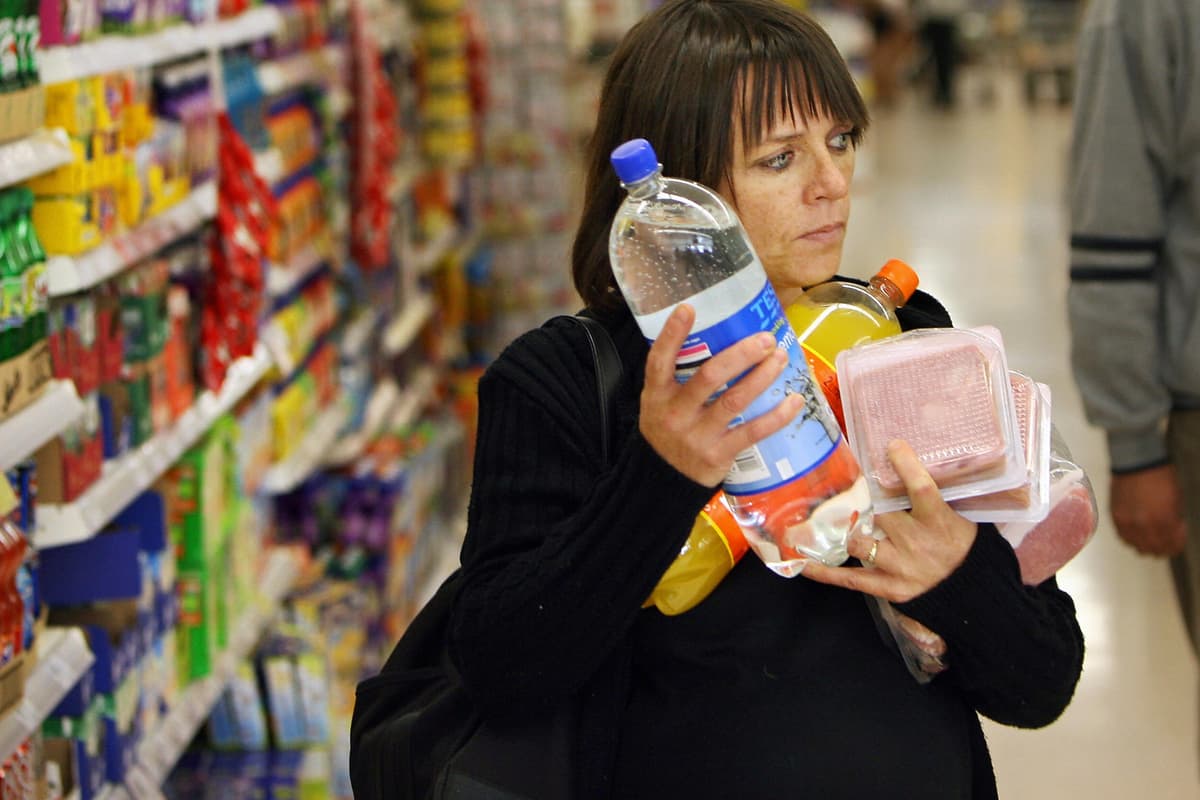UK inflation rate: what is it, latest September 2025 ONS figures news as food prices rise – what does it mean?
By Alex Nelson
Copyright scotsman

UK inflation remained steady at 3.8% in August, above the Bank of England’s 2% targetFood and drink prices rose 5.1%, marking the fifth consecutive month of increasesEssentials like vegetables, milk, eggs, cheese, and fish are driving higher household costsMortgage holders, renters, and everyday shoppers continue to feel pressure on their budgetsThe Autumn Budget may offer targeted support, tax adjustments, and measures to ease rising bills
Inflation held steady at 3.8% in August, but the cost of putting food on the table continues to climb, piling fresh pressure on household finances.
Official figures from the Office for National Statistics (ONS) show food and drink prices rose by 5.1% in the year to August, up from 4.9% in July, fifth consecutive month of increases, marking the highest rate since January.
Everyday essentials like vegetables, milk, cheese, eggs and fish are driving the rise, meaning the weekly shop is once again swallowing a bigger chunk of people’s income.
While the overall Consumer Prices Index (CPI) figure was unchanged from July, inflation remains almost double the Bank of England’s 2% target.
That means the cost of living is still rising faster than policymakers would like, with knock-on effects for borrowers, renters and savers.
What is inflation?
Inflation is the rate at which the general level of prices for goods and services rises over time. In simple terms, it means your money buys less than it did before.
For example, if inflation is 3%, something that cost £100 a year ago would now cost £103.
Moderate inflation is normal in a healthy economy, but high or persistent inflation can erode purchasing power and make everyday items, bills, and borrowing more expensive.
What do the latest ONS figures mean for my money?
Shoppers: Even though headline inflation is flat, supermarket prices are still heading upwards. A family spending £100 a week on groceries will now be paying around £5 more than a year ago, with no sign of food inflation cooling in the short term. This continued squeeze means households may have to cut back elsewhere or dip into savings to keep up.
Mortgage holders: The Bank of England is keeping a close eye on inflation trends before deciding whether to cut interest rates. With inflation still stubbornly high, the likelihood of rate cuts being delayed increases, meaning mortgage repayments are unlikely to fall any time soon. Those on variable-rate deals will continue to feel the strain, while homeowners coming to the end of fixed terms may face higher remortgage costs than they had hoped.
Are you keeping up with the latest headlines? NationalWorld’s breaking news – in your inbox.
Renters: Rising borrowing costs feed into the rental market, as landlords facing higher mortgage payments often pass the increases onto tenants. Combined with stubbornly high food bills, this leaves renters with even less breathing space in their monthly budgets.
Everyday spending: Beyond the supermarket, the ONS reported that petrol and diesel prices went up in August, while restaurants and hotels also kept pressure on household budgets. Even leisure spending – from eating out to concert trips – remains more expensive than a year ago.
How will the Government respond?
Several major retailers and supermarkets say rising business expenses, including higher employer National Insurance contributions and new packaging taxes, are adding to food price increases in the UK.
But Treasury Chief Secretary James Murray rejected claims that government policies were driving higher supermarket prices, instead pointing to global market pressures.
He said that “a key factor in terms of food prices is global commodity prices” and added that recent UK trade deals should “help to bring down the cost of things at the supermarket checkout.”
Chancellor Rachel Reeves acknowledged the squeeze, saying: “I know families are finding it tough and that for many the economy feels stuck.”
She pledged to “bring costs down and support people who are facing higher bills,” while stressing the Government’s longer-term goal of building a stronger, more stable economy.
READ MORE: Rachel Reeves sets date for 2025 Autumn Budget amid rising pressure – what to expect
The Autumn Budget, due at the end of November, should offer further detail on how ministers plan to address the stubbornly high cost of living.
One likely area of focus will be targeted help for households most affected by rising food and energy bills, potentially through additional benefit uplifts or support payments.
There has also been pressure on the Treasury to review tax thresholds, as frozen allowances have dragged more people into higher tax bands simply because wages have risen in line with inflation.
Another possibility is action to tackle food inflation directly. Measures to ease costs for farmers and food producers, or steps to make supermarket pricing more transparent, could help bring down prices on staples over time.
The Chancellor may also look at fuel duty or energy support to cushion households against volatile global markets. For now, though, the reality is clear: while overall inflation may have paused, the rising price of food and essentials means household budgets are still under strain, and relief could be some way off.
Are you struggling to make ends meet as costs continue to rise? You can now send your stories to us online via YourWorld at yourworld.net/submit. It’s free to use and, once checked, your story will appear on our website and, space allowing, in our newspapers.



